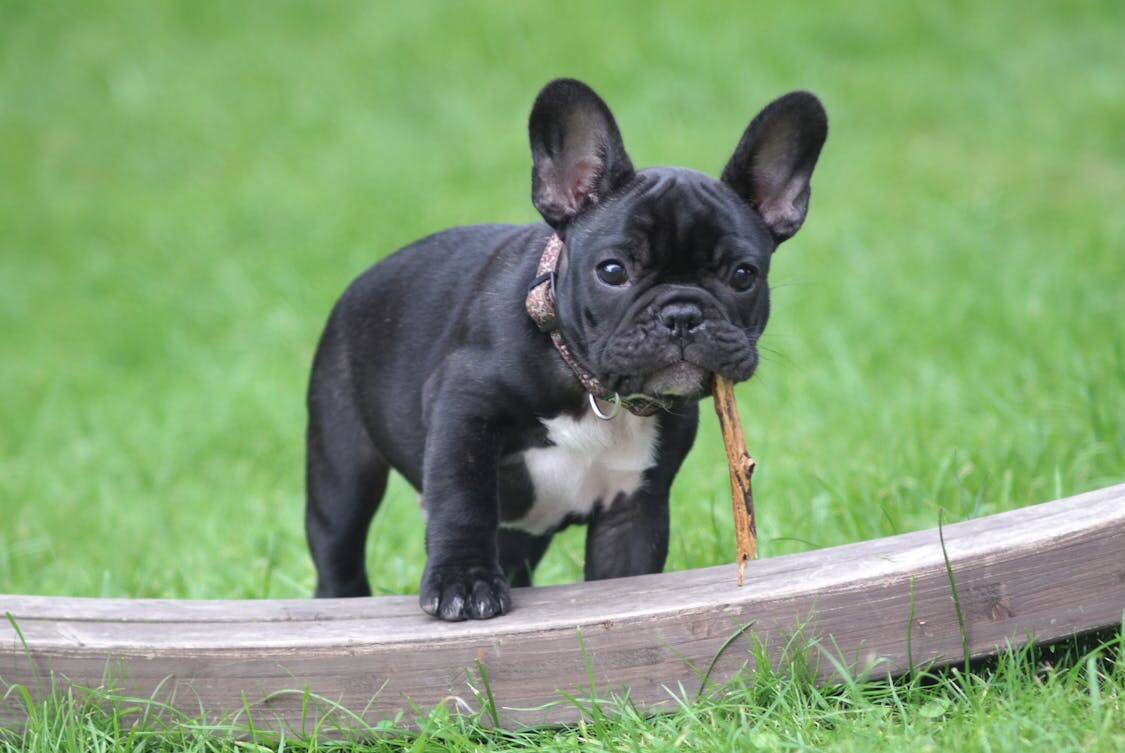
Dogs that crave the outdoors bring an infectious energy to any park or path. They greet fresh air and open spaces with a wag and ready feet, eager for the next run or fetch session.
Each breed has quirks that shape how it plays outside, from boundless endurance to clever problem solving. Read on for five playful breeds that turn a walk into more than a walk.
1. Labrador Retriever
Labradors are built for hearty play and wide-open spaces, often fetching until sunset and then wanting more. Their social nature makes them great companions on group hikes, at the lake, or while playing ball in a large field.
Labs respond well to praise and treats, which keeps training fun and the pace upbeat. They age gracefully when given steady exercise, mental tasks, and a clear routine.
These dogs thrive on swim time, scent work, and long runs that build muscle while releasing excess energy. A short training session before play calms them and channels their enthusiasm into cooperative games.
Labs enjoy carrying light items, which doubles as mental stimulation and a playful chore. Keep their coat brushed and check paws after rough terrain to prevent small problems from growing.
Because Labs can be food-driven, using reward-based methods keeps motivation high and manners in check. Proper socialization with other dogs helps them play nicely on busy trails and beaches.
When planning longer outings, pack water and shaded breaks to keep them comfortable. A tired Lab is a happy home companion, content after a day well spent outdoors.
2. Border Collie
Border Collies are the thinkers of the dog world, always scanning, calculating, and ready to spring into action with laser focus. Their speed and agility shine on agility courses, frisbee fields, and in games that demand quick changes of direction.
Training with varied tasks keeps their mind sharp and prevents boredom-driven mischief at home. Owners who match their intensity will find a lively partner that loves a good challenge.
These dogs excel in herding games and can learn complex routines with short, frequent sessions that test their attention span. Puzzle toys and scent trails add a cerebral layer to physical play, making walks feel like interactive missions.
A well-structured session can tire them out more effectively than endless running alone. Grooming is straightforward, though seasonal brushing helps manage the double coat.
Because Collies can be hyper-focused, mixing calm downtime with bursts of activity creates balance and reduces stress. They often form strong bonds with handlers and respond to clear, consistent cues during outings.
If space is limited at home, a fenced dog park with agility obstacles gives them room to burn rubber. Their sparkling energy makes every outdoor moment an exercise in clever play.
3. French Bulldog

French Bulldogs bring charm and bold personality to outdoor time, surprising people with bursts of playful zeal despite their compact build. Short walks, sniffing missions, and gentle fetch suit their low-to-moderate stamina, and many enjoy lounging afterward in a sun patch.
Owners watch weather carefully for signs of overheating or overexertion, since flat faces make breath work tougher in heat. Regular, measured exercise helps maintain healthy weight and good mood without pushing limits too hard.
If you’re drawn to family-friendly breeds with calm, playful energy, French Bulldogs are a wonderful choice as they blend easygoing affection with enough spark to keep everyone entertained without overwhelming busy households.
They adore social outings where friendly attention and short, structured play are on the menu, because mental variety keeps them engaged. Using soft play toys and brief games of tug provides fun that doesn’t demand long sprints.
Training sessions built from cheerful repetition strengthen manners while reinforcing that play follows rules. A Frenchie’s happy snort and wrinkled grin often make walks feel like a parade of small joys.
Health awareness guides many decisions for this breed, from avoiding hot pavement to offering shaded rest spots and cool water frequently. Short, frequent outings beat marathon hikes for this dog type, and slow acclimation helps build endurance.
Some enjoy water edging with supervision but heavy swimming should be avoided due to body structure. With sensible care, a French Bulldog becomes a playful, devoted companion on easy outdoor excursions.
4. Australian Shepherd
Australian Shepherds combine fierce intelligence with athleticism, turning ordinary outdoor time into focused work-play sessions. They flourish on trails that let them run, jump, and follow scent lines, plus tasks that reward creativity and quick thinking.
Consistent signals from the handler produce slick teamwork; their eagerness to please keeps training lively and efficient. A mix of obedience drills and freestyle games keeps both body and brain in peak condition.
Agility, frisbee, and herding-style drills match their quick reflexes and need to be useful, offering constructive outlets for high energy. Short bursts of high-intensity exercise followed by calm recovery mimic the rhythm that many Aussies prefer.
Proper harnesses and leash work reduce pull and make long walks more comfortable for human companions. Seasonal coat care helps manage shedding while protecting the dog during field play.
Because they bond closely with family members, Aussies benefit from inclusive outings that involve everyone and maintain structure. Mental fatigue often shows before physical tiredness, so a session of puzzle-solving eases them more than an extra mile.
Early socialization with other animals and people prevents overprotective tendencies on crowded trails. Their bright eyes and springy step make them thrilling companions for active outings.
5. Siberian Husky
Siberian Huskies are classic outdoor enthusiasts, bred to pull sleds across frozen expanses and still loving long-distance running or extended play. Their endurance and high-energy temperament make them natural partners for jogs, bike rides, and wide-open runs where they can roam with guidance.
Huskies are social and playful, enjoying pack dynamics with other dogs and people who match their tempo. Their thick coat requires seasonal management but also offers protection in cooler climates.
Training a Husky asks for creativity and firm, fair boundaries, because they are clever and mildly independent-minded by nature. Games that offer choice and movement reward their instinct to explore while reinforcing recall and safety.
Secure fencing matters, as many Huskies are escape artists who follow curiosity over caution. Regular mental tasks prevent boredom-driven digging or noisy antics that test neighborhood patience.
Weather and temperature shape many Husky outings; cool days create ideal conditions for long runs, while hot periods call for early or late outings with shade breaks. They thrive when given purposeful work, even if that work is a complex fetch routine or a long sniffing hike.
Pairing exercise with calm, low-key return routines helps them shift gears back to household life after high-energy sessions. Their bright grin and lively trot make them a joy on trails that suit their stamina.
